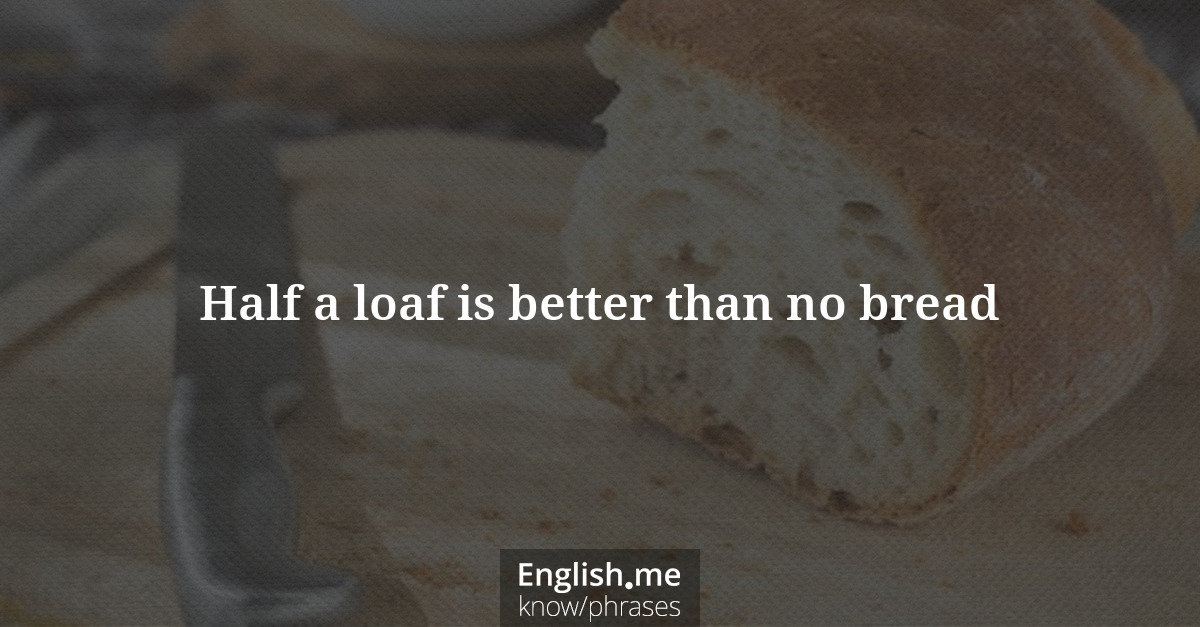Explaining "Half a loaf is better than no bread"
Reviewed and edited by  Lloyd Cooper 06/12/2024, 04:38
Lloyd Cooper 06/12/2024, 04:38
English.me team member
 What does it mean?
What does it mean?

This proverb means that it's better to receive a small or partial benefit than to get nothing at all. It encourages acceptance and appreciation for what one has, even if it's not as much as desired.
 Tone
Tone
Pragmatic and encouraging contentment with partial gains. Origin
Origin
The proverb is rooted in English and has been in use since at least the 16th century. One of its earliest recorded instances is in the 1546 book "A Dialogue Conteinyng the Nomber in Effect of All the Prouerbes in the Englishe Tongue" by John Heywood, where it is written as "... better is halfe a lofe than no bread".
 Examples of usage
Examples of usage
- We hoped for a larger grant, but half a loaf is better than no bread.
- She accepted the part-time job offer because half a loaf is better than no bread.
- They didn't get all the changes they wanted in the policy, but they agreed that half a loaf is better than no bread.

 English
English español
español française
française italiano
italiano deutsche
deutsche 日本語
日本語 polski
polski česky
česky svenska
svenska Türkçe
Türkçe Nederlands
Nederlands